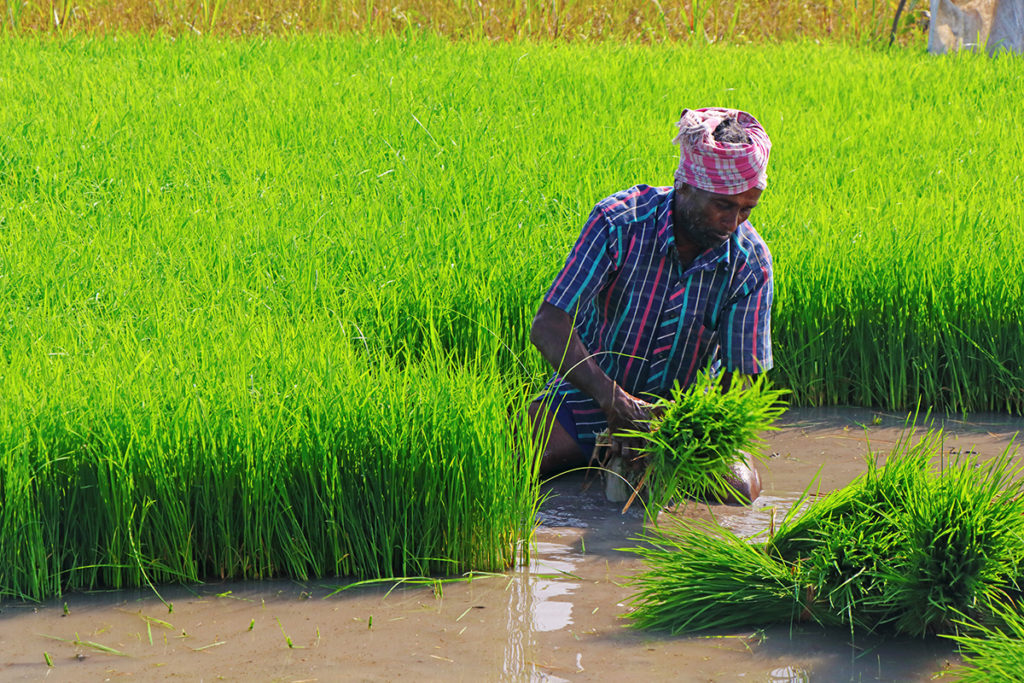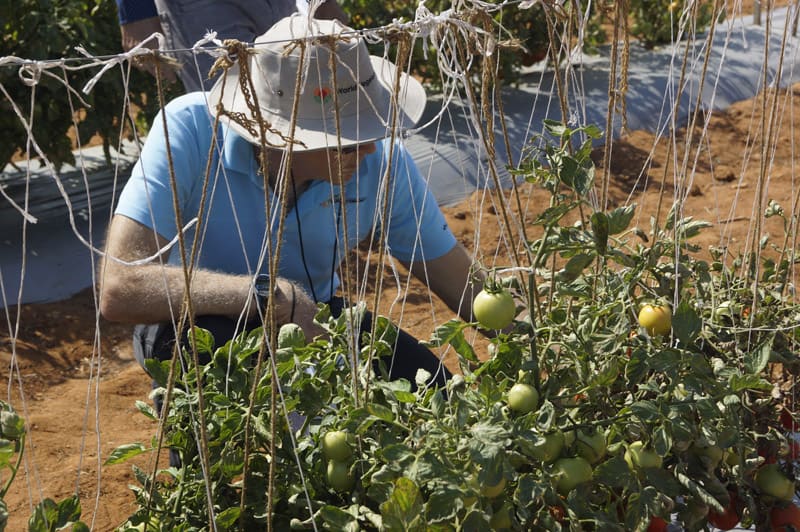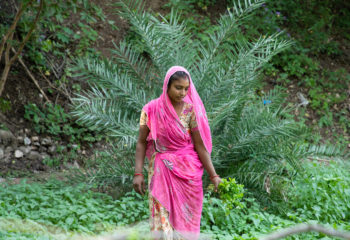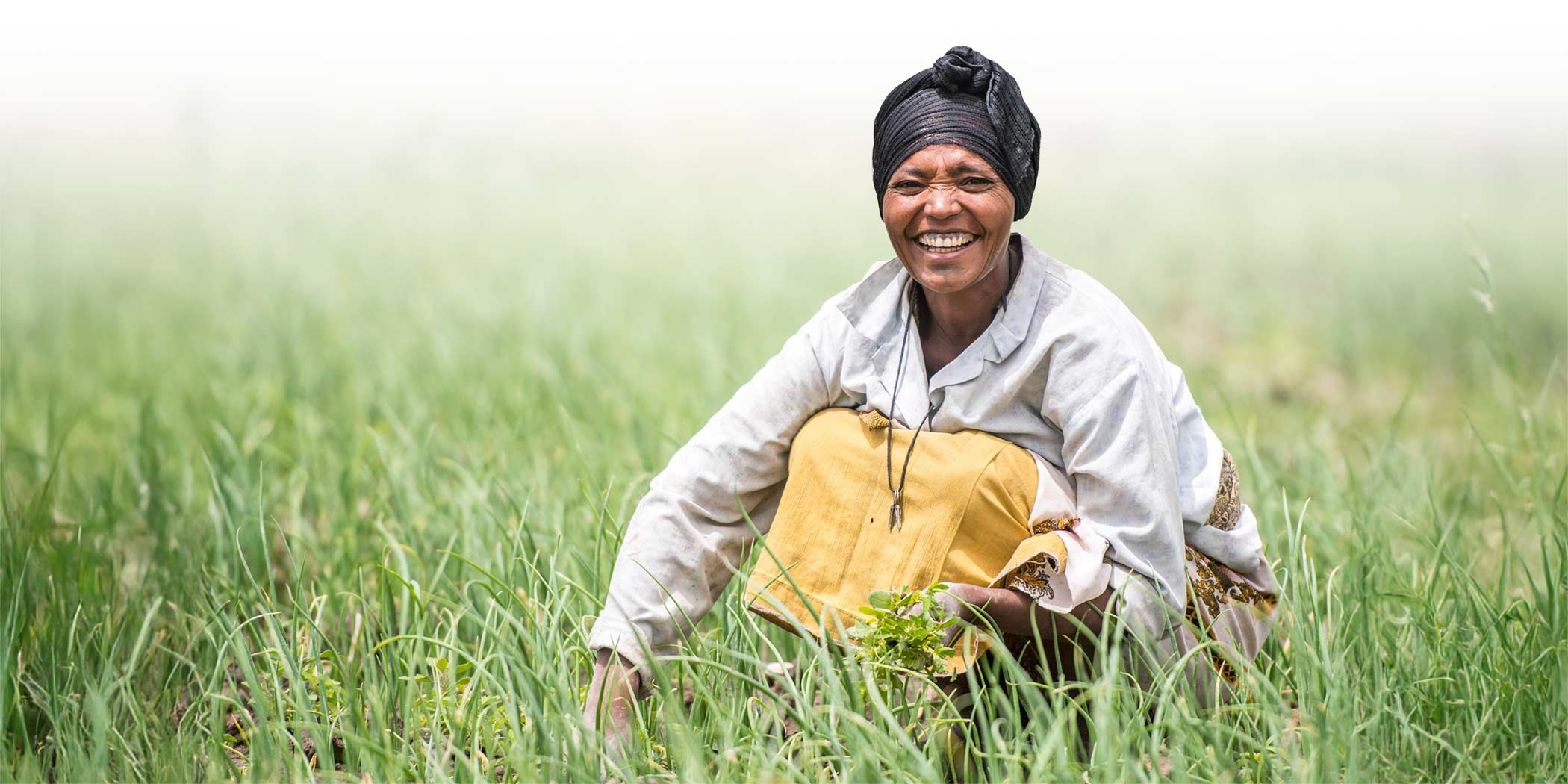
AFI: Building Sustainable Soil Health, Markets, and Productivity in Telangana State (2019 -2024) is a Walmart Foundation-funded project that aims to strengthen agricultural production systems in peri-urban and rural areas of Telangana State, India with several partner institutions, including the World Vegetable Center, Professor Jayashankar Telangana State Agricultural University (PJTSAU), International Crops Research Institute for Semi-Arid Tropics (ICRISAT), private seed and fertilizer firms, and other agribusinesses.
The project seeks to accelerate farming incomes and build thriving agricultural markets by strengthening agricultural production systems.
AFI works with participating farmers, private sector extension agents, agricultural input suppliers, and output buyers in the project areas and beyond. Establishment of these partnerships will ensure that project elements such as technology diffusion, capacity building, micro-enterprise development, and farmer-market linkages are possible. Such linkages will reveal sudden and vast improvements in crop yields and the efficiency of resource use; therefore, farm incomes shall increase.

Expected Outcomes
- Scale out improved technologies and GAPs to 90,000 farmers on 16,000 ha.
- Increase Crop Yield 20-30%.
- $200 increase of income per farm.
- $1200 increase of income for 25 agro-entreprenuers and farm outlets.
Key Goals
This project seeks to create awareness and enhance farmers’ knowledge on improved technologies and good agricultural practices (GAPs) for increasing crop productivity and accelerating farming incomes in rice-based cropping systems in semi-arid regions of Telangana State in India. Farmers’ knowledge will increase through provided training and advisory services for capacity building as part of a community empowerment process. Specific, adaptable technology will be delivered to improve the use of quality seeds, irrigation efficiency, and fertilizer management. Farmers will be provided with training programs, demonstrations, technology, and the appropriate materials for maximum efficiency.
Creating Access to Viable Marketing Pathways and Sustainable Opportunities
The project goal is to increase productive employment in agriculture and related enterprises through the creation of competitive yet sustainable markets for stakeholders in the market, involving agribusiness inputs, outputs, and technologies. Rural retailers and farmers will be trained on small business management and provided appropriate marketing materials. Thriving markets will be built by commercial orientation of farming through the promotion of peri-urban agriculture in Telangana.
Implementation Strategy
- Incorporating peri-urban agriculture (PUA) as part of the poverty alleviation process.
- Assisting the targeted peri-urban poor in marketing agricultural products.
- Providing training and advisory services for capacity building as part of the community empowerment process.
- Delivering specific, adaptable technology transfer toward improving the use of quality seeds, irrigation efficiency, and fertilizer management for three commodity groups – rice-maize, rice-pulse, and rice-vegetable – based on climate-smart and resilient approaches.
- Providing commercial orientation to PUA through the involvement of smallholder farmers, particularly by encouraging women and youth involvement in such initiatives.
- Recognizing the growth and demand for horticultural products and the potential for export opportunities to help smallholders access sustainable farming and income opportunities.
Collaboration
The Accelerating Farm Incomes project brings together several partner institutions, including the World Vegetable Center, Professor Jayashankar Telangana State Agricultural University (PJTSAU), International Crops Research Institute for Semi-Arid Tropics (ICRISAT), Indian Farmers Fertilizer Cooperative (IFFCO) private seed and fertilizer firms, and other agribusinesses that are involved in agri commodity processing, trade, and e-commerce.
Results
2024
- Fostered awareness and enhanced farmers’ knowledge on improved technologies and good agricultural practices (GAPs) to increase crop productivity and accelerate farming incomes in rice-based cropping systems of the semi-arid regions where it operated.
- Created 667 AFI Champions who promoted GAPs and market access, reaching 55,708 farmers in 2023 alone.
- Supported 30 farmer producer organizations, comprising 16,042 members, on scientific storage and electronic trading.
- Helped 6,389 farmers (31% women) adopt safe vegetable production.
- Enhanced capacity building efforts through 1,459 farmer field demonstrations on topics such as the use of drones in crop protection and application of GAPs in vegetables, cereals, pulses, and oilseeds.
- Established soil testing labs, agro-input shops, and nurseries while advancing the use of climate-resilient technologies, urea deep placement mechanization, and quality inputs to boost productivity and reduce post-harvest losses.
2023
- Helped peri-urban farmers of Telangana State take advantage of growing consumer demand for fresh produce in the Hyderabad metropolitan area.
- Emphasized disseminating good agricultural practices (GAPs) and creating links between farmers and other value chain actors.
- Established six additional vegetable collection centers to help farmers get better prices for their products.
- Supported six farmer producer organizations (FPOs) in establishing solar dryers for drying C-grade vegetables and selling them through buy-back arrangements.
- Connected FPO representatives to financial institutions for working capital arrangements.
- Arranged 664 farmer-field demonstrations during the upcoming Kharif (rainy) season on GAPs for vegetables, cereals, and pulses.
- Prepared 3,000 vegetable garden kits to promote safe vegetable cultivation practices.
- Mentored rural agri-entrepreneurs to start businesses that support the promotion of GAPs among the beneficiary farmers.
2022
- Placed emphasis on disseminating good agricultural practices (GAPs) and creating links between farmers and other value chain actors.
- Trained 605 rural agri-entrepreneurs (25% women) to set up locally relevant agribusinesses and support their fellow farmers.
- Organized 804 farmer training demonstrations on GAPs.
- Held short-term capacity-building programs for 6,913 farmers (25% women).
- Developed 28 public-private partnerships to support farmers and farmer organizations.
- Organized six seminars to promote knowledge-sharing among value chain actors.
- Linked 122 village-level aggregators to 20 agro-input dealers for information exchange and to facilitate the timely availability of inputs.
2021
- Placed emphasis on disseminating good agricultural practices (GAPs).
- Strengthened farmer-market linkages for timely sales and better prices, with a particular focus on gender and youth, by providing training and advisory services and disseminating innovations for enhancing the efficiency of natural resources, mechanization, quality seed use, and post-harvest loss reduction in rice, maize, pulses, and vegetable cropping systems.
- Trained 1,647 farmers on GAPs, leading to their implementation on 1,565 hectares, despite a severe second wave of COVID-19 that impacted project staff and participants.
- Adopted digital modes to share knowledge on GAPs and partnered with a leading private company to benefit farmers.
- Held two value chain actor conferences to ensure farmer-market linkages, connecting 102 representatives to meet and discuss needs and opportunities.
2020
- Conducted a quick assessment on the impact of COVID-19 on farmers and agro-input dealers.
- Produced four leaflets on COVID-19-related issues.
- Prepared 10 vegetable training modules.
- Trained 160 farmers (34% women).
- Disseminated good agricultural practices (GAPs) to farmers.


